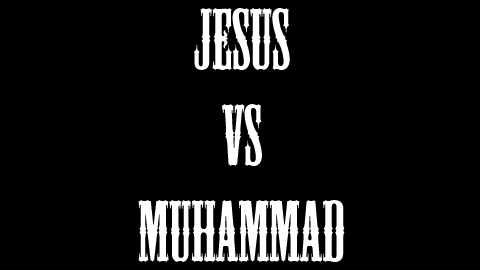 My friend Dr. William Vallicella has yet another long and interesting post on the “same god” controversy. Along the way he makes a number of good points. Philosopher-style, I’ll hone in on the points I disagree with, in this and a follow-up post. Bill says, in part:
My friend Dr. William Vallicella has yet another long and interesting post on the “same god” controversy. Along the way he makes a number of good points. Philosopher-style, I’ll hone in on the points I disagree with, in this and a follow-up post. Bill says, in part:
3. Now consider these conflicting beliefs: God is triune; God is not triune. Please note that it would be question-begging to announce that the fact of this dispute entails that the object of the dispute is one and the same. For that is exactly what is at issue. The following would be a question-begging little speech:
Look man, we are disputing whether God is triune or not triune; we are therefore presupposing that there is one and the same thing, God, about whose properties we are disputing! The disagreement entails sameness of object! Same God!
This is question-begging because it may be that the tokens of ‘God’ in “God is triune; God is not triune” differ in sense so radically that they also differ in reference. In other words, the mere fact that one and the same word-type ‘God’ is tokened twice does not show that there is one and the same object about whose properties we are disputing.
This is an issue that we went round the bush a few times about in our recent podcast discussion. I didn’t fully get how we were talking past one another then, but I do now, and I think we’re both right, and yet, I urge my friend to reconsider his stance. If we have a situation like this,
Person 1: a is F
Person 2: it is not the case that a is F.
then their commitments are inconsistent, to be sure; they can’t both by true.  But we, as uncommitted outsiders, not parties in the dispute, can note this without committing to the existence of this a, whatever it is supposed to be. For example, two Buddhists may dispute about Nirvana. We who are not Buddhists may think that there is no thing that they’re disputing about. (Or we may think they’re disputing about the ultimate reality, but are both mistaken about it.) It’s consistent with the above dispute that there is, and also that there isn’t the purported a. This is the point Bill was making in our conversation, and I think we must agree.
But we, as uncommitted outsiders, not parties in the dispute, can note this without committing to the existence of this a, whatever it is supposed to be. For example, two Buddhists may dispute about Nirvana. We who are not Buddhists may think that there is no thing that they’re disputing about. (Or we may think they’re disputing about the ultimate reality, but are both mistaken about it.) It’s consistent with the above dispute that there is, and also that there isn’t the purported a. This is the point Bill was making in our conversation, and I think we must agree.
But here’s the point I was making. In this “same god” dispute, a Christian, as such, ought not think of himself as a neutral observer. Rather, he’s in the dispute qua Christian. So insofar as you’re disputing with a Muslim about God, you are committed to the fact that they are referring to God, when making (what are in your view) false claims about him. Now many want to bring in Trinity theories here because they hold these to be the crowning achievement and beating heart of Christian belief. OK, then; we have this dispute:
Muslim: Allah/God is not triune.
trinitarian Christian: God is triune.
Do you take this to be a disagreement? If so, then you think the Muslim is talking about the same god you, the trinitarian Christian, are talking about. To my friend Bill, I would point out that his stance so far requires him to say this to the Muslim: “I say that God is triune, while you say that Allah is not triune. Well, that may be, whoever this Allah is, for all I know.” So then, no disagreement yet, as it’s not clear that there’s one subject-matter in common. If one being is triune, for all we know this is consistent with the claim that some other being is not triune. If we don’t know that we’re talking about the same being, we’re not in any position to disagree yet.
But it seems to me that Christian-Muslim disagreement runs deeper than Trinity theories. Early Christians and Jews always understood Muhammad to be claiming to be a prophet sent by God. Which god? Theirs! And, they disagreed. So the disagreement was,
Muslim: Muhammad is a prophet of God.
Christian: It is not the case that Muhammad is a prophet of God.
Bill’s reply would have to be, in contrast, “Well, whoever this “God” (“Allah”) may be, for all I know, this being may have sent Muhammad to deliver his message. But what does that have to do with me? I have no idea whether or not this fellow is claiming to speak for my god.”
 I think the really fundamental disagreement between Christians and Muslims concerns these contrary claims:
I think the really fundamental disagreement between Christians and Muslims concerns these contrary claims:
Christian: Jesus is the last and greatest revealer of God’s nature, will, and ways.
Muslim: Muhammad is the last and greatest revealer of God’s nature, will, and ways.
The background assumption, which is obviously true, is that Jesus isn’t Muhammad, and vice-versa. Plainly then, the claims are contrary. Logically, they could both be false, but they could not both be true.
But if Bill’s really going to be agnostic about the reference of “Allah,” it seems to me that he should say, “I think Jesus is the best revealer of God – you say that Muhammad is the best revealer of this other being. Well, that may be so; I’m not committed either way.”
Honestly, I think this misunderstands the Islamic message. A Muslim, wholly in accord with the basic sources of his tradition, will reply to him, “No, you misunderstand – I think Muhammad is the best revealer of God. What you call “God” is the one we call “Allah.”” In their minds, “Allah” and “God” co-refer. (I argue in the next podcast that a Christian should think this suffices for their referring to God.)
In sum, I think my friend is an excellent philosopher, and strives to look at matters from a neutral point of view. But of course it is truth we’re after, and not just some sort of absolutely neutral and fair arguing, so we have to argue in light of the beliefs or commitments we have. Protests of “question begging” seem out of place here. And it would seem that a traditional Christian standpoint requires admitting that Muslims are making claims about God. In this post I’ve mostly emphasized a right understanding of Islam, and of historical Islamic-Christian disputes. But in my next post, I’ll go into a little more detail about relevant Christian commitments which are directly relevant to this matter.

Ultimately – the real issues are
1. Does anyone meaningfully know God – besides Jesus Christ (per Christian faith)
2. Is not everyone’s God in some sense different…?
Ultimately we are all talking about a personal Creator – in that sense, we are all speaking of the same entity – the entity that created us. The questions after that become more subtle – who exactly is this entity…. And can we meaningfully know?
Pingback: Vexing Links (2/13/2016) | vexing questions
Comments are closed.